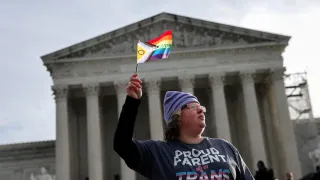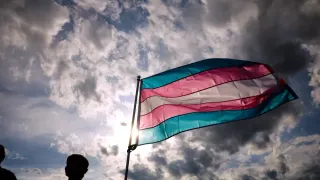March 27, 2016
Citizen Caucus Addresses Healthcare Concerns with Government Reps
Kevin Varner READ TIME: 4 MIN.
Held yearly in Washington, D.C., AIDSWatch is a caucus of citizens living with or affected by HIV and is assembled to discuss with elected officials the issues impacting those with HIV/AIDS. With over 300 represented from 36 states, North Carolina had the third largest delegation in the country, with 23 members. It was held from Feb. 29-March 1.
The conference is a melting pot of diversity - so many races and ethnicities, that were I to attempt to list them all, I would leave several out - men, women, transgender men, transgender women, gay, straight, bisexual, lesbian, mothers, fathers, sons, daughters, veterans, immigrants, disabled, clergy, sex workers, CEOs, the list goes on.
Without the lanyards around our necks advertising our names with the "AIDSWatch" logo, or the signage visible near the conference rooms at the hotel where the yearly event is held, passersby would have no idea what we share in common. Without those three letters, "HIV", it's not obvious.
But, when I looked around the room, I saw the faces of HIV/AIDS today. It's all of us here, and it could be any of us. HIV/AIDS doesn't discriminate. People do.
This nasty virus binds us in solidarity for those experiencing stigma, barriers accessing affordable and consistent treatment and those without basic needs like food and housing, made more urgent by HIV's presence. We speak to our senators and representatives on behalf of those who cannot, sharing triumphs and struggles, praise for their past support and concerns for the future.
Most of all, we bring our collected stories to lawmakers.
Stories make HIV visible, saying, "See us. Hear us. We have HIV and we are living, not dying. We are growing older and aging. We are told to expect long, healthy lives, and we believe it. But, this isn't over. We need help to thrive in the face of stigma, discrimination and barriers to healthcare, housing and HIV Prevention for those most at risk."
Housing Opportunities for People With AIDS (HOPWA) is a federal program providing stable, affordable housing for people with HIV/AIDS. HOPWA gives stability to those in unstable, homeless situations living with the virus. Unfortunately, the HOPWA funding formula is still based on an antiquated model that includes national census data combining all people - both living and deceased - identified as having AIDS in a state. Updating HOPWA to include only those who are alive, not dead, would greatly increase the amount of funding available. North Carolina stands to gain a significant amount of money if this passes the House and Senate. Currently, the HOPWA waiting list is miles long, and HOPWA modernization would significantly reduce that waiting list.
One of Sen. Thom Tillis' staff asked me to explain how stable housing relates to stopping the spread of HIV. "Will you connect the dots for me?" he asked.
"My training is in counseling psychology," I explained. "Are you familiar with Maslow's Hierarchy of Needs?"
"Yes, I am," he said. He was clearly paying attention, helping me feel less nervous as I sat in a blue leather chair in the ornate conference room of Sen. Tillis' office on Capitol Hill, flanked by my NC AIDSWatch brothers and sisters.
"Okay," I replied. "Before a person can begin to deal with HIV, they must have some basic human needs met - food, clothing and shelter. Of those three, food and clothing are fairly easy to come by. We don't have naked homeless people wandering the streets of our state, and in most cases, a homeless person can find somewhere to get a meal. But stable housing is another matter entirely. Housing someone with HIV provides safety and security. Within those walls, they can store their HIV meds safely, rest and heal. Their medicine can be mailed, they have a place where they can be picked up and taken to their appointments, and they may more easily receive Ryan White Funding, AIDS Drug Assistance Program Funding and access other programs like Medicaid. Through stable housing, the odds are greater of staying medically compliant, not missing doses, suppressing HIV to an undetectable level, living a longer, healthier life and lowering risk of infecting others. That's how modernizing the HOPWA Formulary will help stop the spread of HIV."
I assumed that the senator's staffer would smile and nod, take a photo, pretending to listen, but not really "hear us." I misjudged. I'm not sure what will happen with HOPWA, but all of us from North Carolina who participated in AIDSWatch felt we had been heard. We shared stories, were fully present and spoke with strength and dignity on behalf of those in our state living with HIV.
"AIDSWatch" reminds our lawmakers that we are paying attention to the choices they make. We are diverse, we are strong, and we have a voice in the fight to end HIV, and we will be watching what our elected leaders do next.
Kevin Varner is director of prevention and education at Triad Health Project in Greensboro, N.C. He is a member of NC AIDS Action Network and has been thriving in spite of HIV since 2007.

 Copyright QNotes. For more articles from QNotes visit
Copyright QNotes. For more articles from QNotes visit 




